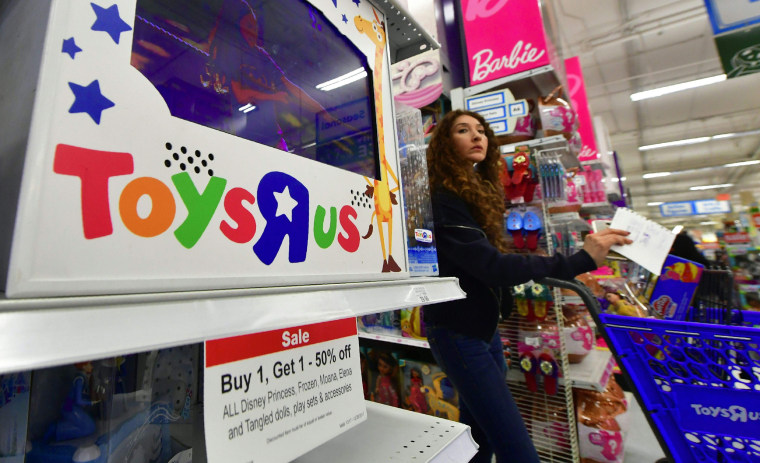When we were kids, we would drag our parents to the toy store in the local mall, get our hands on the latest action figure, game or other must-have toy, and badger them until they bought it for us — just as toymakers wanted.
Now, with the announcement that Toys R Us plans to liquidate and close all 735 stores in the United States, the last dedicated retail footprint for the sector will vanish, leaving manufacturers hunting for new ways to capture youngsters’ attention — and their parents’ dollars.
“From an experiential standpoint, Toys R Us is really the only showplace manufacturers have for toys,” said Marc Rosenberg, an entrepreneur and toy marketing executive. “The best way to sell a child a toy is to let them try it. You can only do so much online. If you don’t have that touchpoint, you’re really losing an opportunity to sell.”
Marketing pros predicted that toymakers would turn more to experiential marketing tactics like event sponsorships, pop-up stores and road shows to get toys in kids’ hands, along with more online content like “unboxing” videos.
“Children still want to ‘discover’ things,” said Robert Passikoff, founder and president of consulting firm Brand Keys. “The set-ups in stores are very engaging, but given the world of social networking… there are other ways of exposing what’s out there and the toy manufacturers are going to have to get a lot more clever in terms of engaging outreach.”
Aside from marketing, the liquidation will create pricing, distribution and technological challenges for toy companies.
Analysts say it will be a headache for toy-industry heavyweights like Hasbro and Mattel in the near term as Toys R Us winds down its American retail operations, which includes shopping around its 200 top-performing stores in the hopes of keeping them open.
“I think there is some near-term disruption — that’s more a result of Toys R Us going to be liquidating inventory and obviously, they’re going to be slashing prices,” said Eric Handler, a media and entertainment analyst at MKM Partners.
“This is a transitional year I think it’s because it’s not known where you have to distribute and what the allocations should be,” said Jim Silver, CEO of toy review site TTPM.com.
While a significant majority of toys are still sold in brick-and-mortar locations, online competition looms large. “The exposure has been increasing to e-commerce in recent years,” said Jaime Katz, an equity analyst at Morningstar.
An increasing reliance on Amazon has the potential to threaten toymakers’ profits, she said, and could prompt brands to invest more in their own online channels. “You wonder if they’re going to make a bit of a push to sell on their own platforms… to make sure pricing remains optimal to protect the brand.”
Ultimately, analysts expect that Toys R Us exiting the market will help the biggest toymakers gain market share. For smaller manufacturers, which face being crowded out of big-box or department stores, it’s another story.
“Toys R Us was much more important for smaller companies that couldn’t get on the shelves at Target or Walmart,” Katz said.
One silver lining could be that independent retailers might get a toehold on the market.
Aside from big-box stores, Toys R Us’s market share would likely be absorbed by a combination of department stores and more unconventional types of retailers like pharmacies, party-supply, and craft stores.
If there is a silver lining, it is the suggestion that these retail maneuverings provide an opening for independent retailers to reclaim a toehold on the market — a prospect that could be a lifeline for smaller manufacturers, as well.
“There’s this whole thinking in the toy business that Toys R Us killed mom-and-pops, Amazon killed Toys R Us, and it’s kind of funny… for the mom-and-pops and some of the independents now, there really is an opportunity to come back,” Rosenberg said.
